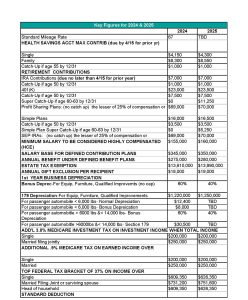In Washington D.C., Senators want to overhaul the current federal rules and regulations on international taxation. Needing extra funding to repair the nation’s infrastructure, the Congressional bipartisan teams examined the territorial vs. worldwide approach to international taxation. A bipartisan proposal by Senators Rob Portman (R-OH) and Charles Schumer (D-NY) could help form the core of a deal on international rules and regulations for businesses.
Congressional Tax Reform
The majority of rules and regulations that apply to international taxation date back to the days of President John F. Kennedy. Given the immense shifts in foreign markets and the incredible technological updates in the past 50 years, it is time to make the international taxation laws of the United States reflect such changes. In the proposal, the two senators make the case that the half-century old international system “reflects the realities of a different era.”
By updating them, the tax reform proposal will help businesses and workers. U.S. multinationals, for instance, now get over half their income from elsewhere in the world. Three decades ago, those corporations got more than three-quarters of their income domestically. From the perspective of the majority of tax professionals, it is time for the tax reform of such a dated system to take place.
International Tax System

Senator Sherrod Brown (D-OH), a member of the international working group, pointed out the importance of such tax reform when he said, “We have the opportunity to modernize our international tax system to protect American jobs and American manufacturing.”
The Republican goal of the tax reform is to shield the majority of offshore corporate income from U.S. taxation, the sort of “territorial” system long favored by conservatives. The bipartisan proposal, however, also calls for tougher worldwide rules that will prevent multinational corporations from defrauding the IRS. The Democrats no longer want American corporations to be able to shift their profits to foreign tax havens that undermine the U.S. system of taxation.
After heading a Senate Finance working group on international issues with Senator Portman, New York Senator Charles Schumer believes the framework built on bipartisan proposals is on solid ground. Schumer further explained in a statement, “Our international tax system is upside down and inside out. It creates incentives to send jobs and stash profits overseas, rather than creating jobs and economic growth here in the United States.”
Challenge of International Taxation
Despite the good tax reform ideas presented, there remain many barriers to the new laws and regulations. Business groups and corporate tax reform coalitions object to the idea of taxing corporate profits already offshore. While the corporate community has long pushed for a territorial system, large businesses could also be put off by some of the Democratic ideas in the bipartisan proposal.
Portman and Schumer, for instance, don’t weigh in on what tax rate they should use on the $2 trillion currently held offshore by corporations. Obama called for a 14 percent rate in his latest budget. The framework also foregoes the details of the territorial system. On account of this lack, the proposal for international tax reform seems preliminary at this time.
International Taxation Support
Without question, the international tax team at LSL CPAs believes such details should be ironed out in order to move forward with the tax reform proposal. The laws and regulations that are over half a century old need to be modernized. By addressing the changes in the worldwide economy, U.S. tax reform can help business owners thrive on an international level.




